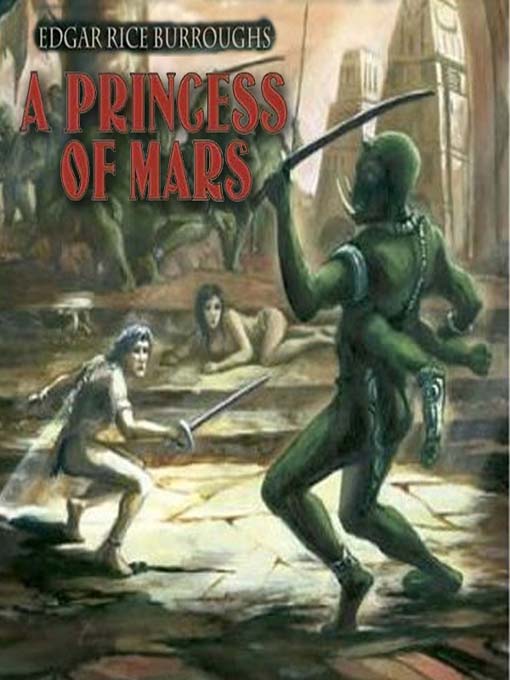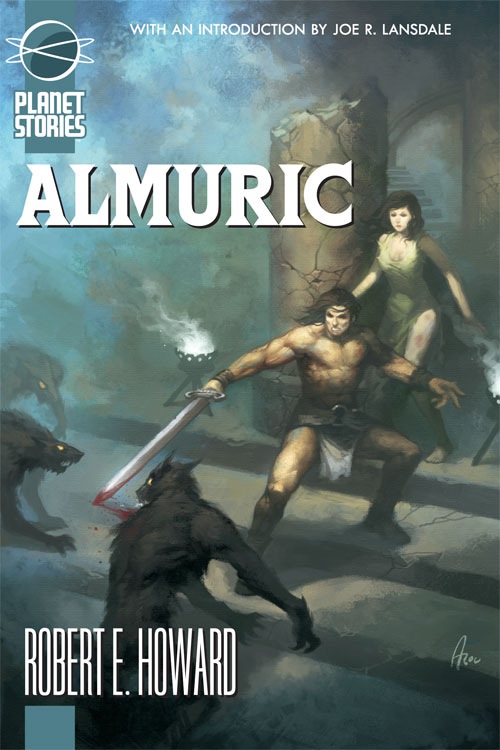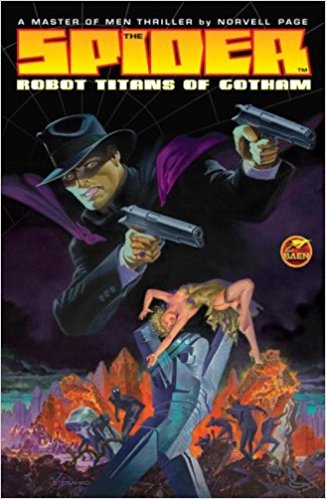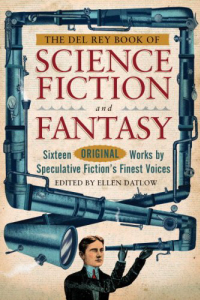You know that guy, Austin Tappan Wright, who spent his entire life writing a massive utopian novel Islandia, a fantastic work in every sense, which only saw print after his death?
I hate that guy.
Not because there was anything wrong with him, a fine person by all accounts, or his masterpiece, a cleanly written and intensely imagined fantasy. No, it’s just that one tends to hate what one fears and for a long time I feared a minor-league version of his fate. I often envisioned someone, after my death, clearing away my papers (or data clouds, or whatever we’ll be using for documents in the distant, I say distant, future) and finding references to someone named Morlock. “Did Enge write fiction?” they’d say in my recurring nightmare. “I thought he just killed undergraduates with humiliating questions about gerunds and Zeus’ sex life.”
Now, anyway, that won’t happen, thanks largely to the two people editing Black Gate. John O’Neill bought a few Morlock stories from me back in 2004/2005, and Howard Jones took a couple more when he was editing the e-zine Flashing Swords in its first and greatest iteration, and on the strength of the Morlock series I eventually got an agent and this summer signed a two-book deal with Pyr Books. The first book, Blood of Ambrose, is due out in April 2009. I don’t say success is imminent, certainly not with the financial crisis casting a shadow over publishing along with every other field of endeavor in the US, but my obituary will probably have occasion to mention my fiction when it appears in the county newspaper (or neural nanotransmitters, or whatever we’ll be using for news-media in the distant, I say distant, future). So: thanks, John and Howard. I owe you.
It’s not to repay the debt, which can’t be repaid, that I accepted their invitation to group-blog here. It’s that, when given a chance, I’m constitutionally unable to refrain from running my mouth about stuff on my mind, whether I know anything about it or not, and fortunately this is one of the three great purposes of the internet (along with pron and lolcatz).
The thing on my mind at the moment is unicorns. It started with the announcement of the upcoming anthology Zombies vs. Unicorns (edited by Holly Black and Justine Larbalestier), which struck me as a brilliant idea. (I had half a thought or so about it which I blogged here.)
Then last night, as synchronicity would have it, I read a W.B. Yeats play about players and pretenders, “The Player Queen”, in which unicorns loom large, although they never actually appear. Rumors of unicorns tag the local ruler as a witch; one second-hand report even has the unicorn and the reclusive queen doing the nasty. A drunken poet named Septimus defends the unicorn from any charge of impurity, but as the play goes on (and he sobers up?) he starts railing against the “violent virginal creature”:
If we cannot fill him with desire he will deserve death. Even unicorns can be killed. What they dread most in the world is a blow from a knife that has been dipped in the blood of a serpent that died gazing upon an emerald.
I’m not sure what half the stuff about unicorns in the play means, but it’s clearly a powerful symbol of otherness and hope. Since then unicorns have been used and imagined and reimagined so much that their emotional halo has been mylittleponied into blunt four-color rainbows. They’re overfamiliar. “They had their day but now they’re passé.” “That old preacher character don’t make me laugh anymore.”
In a way, this is inevitable. Any symbol, if it penetrates deeply into a culture, attracts parody and appropriation–it’s one way you can start to actually see the thing again, as opposed to scanning past it and saying, “Yeah, I know what that is.” Consider the million-and-one parodies of the Mona Lisa. They don’t diminish the original.
But it seems as if the poppification of the unicorn has gone beyond this, banalizing the image so that it is almost impossible to use it in a semi-serious context, even in fantasy where, one would think, an occasional unicorn might find an unspoiled field to roam in.
Can the unicorn be saved? Or is the image just used up and does it need to lie fallow for a century or two before it’s usable again?
I don’t know, but it’s a more important question than it might seem at first. The unicorn is just one instance of a larger trend where the tropes of fantasy have become so familiar they are almost toxic. Naturally the genre needs to go on finding new tropes (and it seems to me to be having a little trouble with that), but it would also be good if we could somehow detoxify the old ones, remake them, reforge those broken blades. If so, maybe even the sickly unicorn can take new life.
And if not–what were those ingredients again? An emerald, a snake, a knife…




 Gathered as we are around the virtual fireplace this week on the Black Gate site, with each of us blogger-types introducing ourselves and sharing some of our insights or opinions or our unique perspective based on how far along we are with our own writing projects, or what sort of specialist knowledge we can impart on the Black Gate community, I am confronted again with a problem I’ve had to deal with on my own
Gathered as we are around the virtual fireplace this week on the Black Gate site, with each of us blogger-types introducing ourselves and sharing some of our insights or opinions or our unique perspective based on how far along we are with our own writing projects, or what sort of specialist knowledge we can impart on the Black Gate community, I am confronted again with a problem I’ve had to deal with on my own 